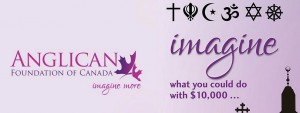In his book Rage Against God, Peter Hitchens makes the point that both atheists and theists believe as they do simply because they choose to do so. In the case of atheism, it is generally a choice made from self-interest: if we admit that God exists we must also admit he might very well require something of us, something we may not wish to give.
Mainline churches have incorporated and refined this whole process, especially when dealing with the gay issue. The Anglican Church has produced endless papers, theological reflections and conversations on why, for 2000 years, the church had it wrong. All a learned smokescreen designed to conceal the real reason: compared to the general population, there is a disproportionately high number of gay clergy who wish not only to continue living with their same-sex partners, but to have their employer’s approval of the arrangement.
The same principle applies vicariously: people like Tony Campolo and Michael Coren who used to oppose gay marriage are now all for it. Not because the arguments have changed, but because condoning the lifestyle of their gay friends affords them feelings of fuzzy comfort – our contemporary substitute for love – whereas disagreement, however truly loving, can be so….. well, unpleasant, intolerant and hurtful.
None of this is new, of course: Peter Hitchens wrote about Aldous Huxley’s view of it here:
The interesting bit , for this part of the argument, begins at the bottom of page 269, where Huxley is discussing the reality of the ‘meaning’ which we like to give to the world and our actions within it.
‘This is a question’, says Huxley, ‘which, a few years ago, I should not even have posed. For, like so many of my contemporaries, I took it for granted that there was no meaning’…
‘…I had motives for not wanting the world to have a meaning; consequently assumed that it had none, and was able without any difficulty to find satisfying reasons for this assumption…
‘Most ignorance is vincible ignorance. We don’t know *because we don’t want to know*(my emphasis). It is our will that decides how and upon what subjects we shall use our intelligence. Those who detect no meaning in the world generally do so because, for one reason or another, it suits their books that the world should be meaningless…’
[…..]
‘No philosophy is completely disinterested. The pure love of truth is always mingled to some extent with the need, consciously or unconsciously felt by even the noblest and the most intelligent philosophers, to justify a given form of personal or social behaviour, to rationalize the traditional prejudices of a given class or community.’


 From
From